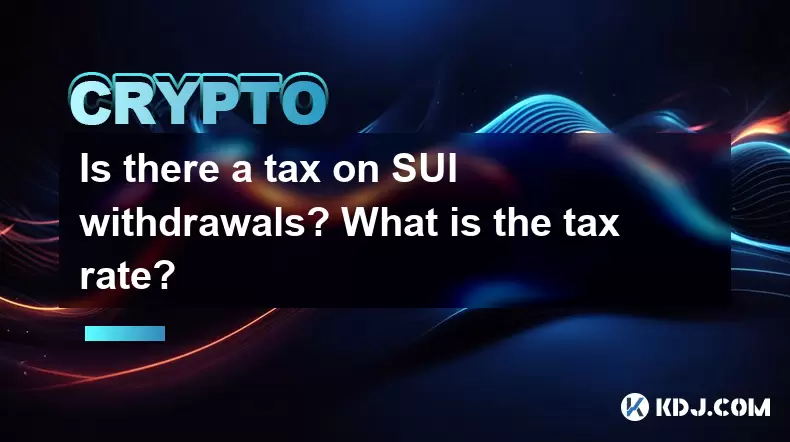-
 Bitcoin
Bitcoin $107,352.1067
0.28% -
 Ethereum
Ethereum $2,429.3531
-0.90% -
 Tether USDt
Tether USDt $1.0001
-0.02% -
 XRP
XRP $2.1894
4.62% -
 BNB
BNB $646.7968
0.36% -
 Solana
Solana $147.4290
4.03% -
 USDC
USDC $0.9998
-0.02% -
 TRON
TRON $0.2756
1.52% -
 Dogecoin
Dogecoin $0.1630
1.14% -
 Cardano
Cardano $0.5612
1.18% -
 Hyperliquid
Hyperliquid $37.0580
-0.05% -
 Bitcoin Cash
Bitcoin Cash $496.9410
-0.09% -
 Sui
Sui $2.7318
3.19% -
 Chainlink
Chainlink $13.1503
0.58% -
 UNUS SED LEO
UNUS SED LEO $9.0766
0.55% -
 Avalanche
Avalanche $17.7220
1.46% -
 Stellar
Stellar $0.2380
1.52% -
 Toncoin
Toncoin $2.8439
0.38% -
 Shiba Inu
Shiba Inu $0.0...01143
1.84% -
 Litecoin
Litecoin $85.8053
1.47% -
 Hedera
Hedera $0.1483
2.70% -
 Monero
Monero $314.3240
2.12% -
 Bitget Token
Bitget Token $4.6725
0.77% -
 Dai
Dai $1.0000
0.00% -
 Polkadot
Polkadot $3.3555
1.28% -
 Ethena USDe
Ethena USDe $1.0001
0.02% -
 Uniswap
Uniswap $7.0890
2.64% -
 Pi
Pi $0.5355
-3.40% -
 Pepe
Pepe $0.0...09393
1.06% -
 Aave
Aave $256.8136
-1.90%
Is there a tax on SUI withdrawals? What is the tax rate?
SUI withdrawals may be subject to capital gains tax; rates vary by country, e.g., 0-37% in the US, 10-20% in the UK, and depend on holding period and income level.
May 13, 2025 at 02:36 pm

Is there a tax on SUI withdrawals? What is the tax rate?
When dealing with cryptocurrencies like SUI, understanding the tax implications is crucial for both compliance and financial planning. The question of whether there is a tax on SUI withdrawals and what the tax rate might be involves several layers of consideration, including the nature of the transaction, the jurisdiction in which the withdrawal occurs, and the specific tax laws applicable to cryptocurrencies. Let's delve into this topic in detail.
Understanding SUI Withdrawals
SUI, like other cryptocurrencies, operates on a blockchain network where users can transfer, stake, or withdraw tokens. A withdrawal from a SUI wallet or exchange typically means moving the tokens out of a platform into a personal wallet or another exchange. The tax implications of these withdrawals depend on the purpose of the withdrawal and the tax laws of the country where the withdrawal takes place.
Taxation of Cryptocurrency Transactions
Cryptocurrency transactions, including withdrawals, can be subject to taxation in various forms. The key to understanding the tax on SUI withdrawals lies in recognizing the type of transaction and its tax treatment. Generally, tax authorities around the world categorize cryptocurrency transactions into several types: income, capital gains, and possibly other forms like value-added tax (VAT) or goods and services tax (GST).
Tax on SUI Withdrawals as Income
If you receive SUI as payment for goods or services, the value of the SUI at the time of receipt is considered taxable income. When you withdraw this SUI, the tax event has already occurred at the point of receipt. However, if you withdraw SUI that you have earned as income and then convert it to another currency or asset, you may trigger another taxable event depending on the jurisdiction.
Capital Gains Tax on SUI Withdrawals
For investors, the most common tax implication of SUI withdrawals is related to capital gains. If you purchased SUI and its value has increased by the time you withdraw it, you may be subject to capital gains tax. The tax rate for capital gains varies by country and can depend on factors such as the length of time you held the asset and your income level.
- In the United States, for example, short-term capital gains (assets held for less than a year) are taxed at your ordinary income tax rate, which can range from 10% to 37%. Long-term capital gains (assets held for more than a year) are taxed at a lower rate, typically 0%, 15%, or 20%, depending on your income.
- In the United Kingdom, capital gains tax rates are 10% for basic rate taxpayers and 20% for higher or additional rate taxpayers on gains above the annual exempt amount.
- In Australia, capital gains are added to your assessable income and taxed at your marginal tax rate, but you may be eligible for a 50% discount if you held the asset for more than 12 months.
Withdrawals and Tax Reporting
When you withdraw SUI, it's important to keep detailed records of the transaction, including the date, the amount of SUI withdrawn, and the value of SUI in your local currency at the time of withdrawal. These records are essential for accurate tax reporting and can help you calculate any capital gains or losses.
Jurisdictional Differences in Taxation
Tax laws regarding cryptocurrencies vary significantly from one jurisdiction to another. Some countries have clear guidelines on how to treat cryptocurrency transactions, while others are still developing their policies. For instance:
- In Canada, the Canada Revenue Agency (CRA) treats cryptocurrencies as commodities, subject to capital gains tax. Withdrawals of SUI would be treated similarly to other commodity transactions.
- In Singapore, the Inland Revenue Authority of Singapore (IRAS) does not impose GST on the purchase or sale of cryptocurrencies, but income derived from trading or mining may be subject to income tax.
- In Germany, cryptocurrencies are treated as private money, and profits from the sale of cryptocurrencies held for more than one year are tax-free, while short-term gains are taxed at a flat rate of 25%.
Practical Steps for Managing SUI Withdrawal Taxes
To manage the tax implications of SUI withdrawals effectively, consider the following steps:
- Keep Detailed Records: Document every SUI transaction, including the date, amount, and value in your local currency. This will help you calculate any taxable gains or losses accurately.
- Understand Your Jurisdiction's Tax Laws: Research the specific tax laws in your country regarding cryptocurrencies. Consult with a tax professional if necessary to ensure compliance.
- Report Your Transactions: Ensure that you report all relevant SUI transactions on your tax return. This includes any income received in SUI and any capital gains or losses from SUI withdrawals.
- Consider Tax Planning Strategies: Depending on your situation, you might be able to use strategies like tax-loss harvesting or holding assets for longer periods to benefit from lower long-term capital gains rates.
Frequently Asked Questions
Q: Do I need to pay taxes on SUI if I use it to purchase goods or services?
A: Yes, if you use SUI to purchase goods or services, the value of the SUI at the time of the transaction may be subject to sales tax or VAT, depending on your jurisdiction. Additionally, if the SUI was originally received as income, you would have already been taxed on its value at the time of receipt.
Q: Can I offset capital losses from SUI withdrawals against other income?
A: In many jurisdictions, you can offset capital losses from SUI withdrawals against capital gains from other investments. Some countries also allow you to offset these losses against other types of income, but the rules vary, so it's important to check the specific tax laws in your country.
Q: What happens if I don't report my SUI withdrawals on my tax return?
A: Failing to report SUI withdrawals and other cryptocurrency transactions can lead to penalties and interest on the unpaid taxes. In some cases, it could also result in more severe consequences, such as audits or legal action. It's crucial to comply with tax reporting requirements to avoid these issues.
Q: Are there any tax exemptions or reliefs available for SUI withdrawals?
A: Some jurisdictions offer tax exemptions or reliefs for certain types of cryptocurrency transactions. For example, in Germany, profits from the sale of cryptocurrencies held for more than one year are tax-free. It's important to research the specific tax laws in your country to see if any exemptions or reliefs apply to your SUI withdrawals.
Disclaimer:info@kdj.com
The information provided is not trading advice. kdj.com does not assume any responsibility for any investments made based on the information provided in this article. Cryptocurrencies are highly volatile and it is highly recommended that you invest with caution after thorough research!
If you believe that the content used on this website infringes your copyright, please contact us immediately (info@kdj.com) and we will delete it promptly.
- Across Crypto Project Faces Heat: Secret $23M Transfer Sparks Governance Debate
- 2025-06-28 16:30:13
- Trump Coin's Wild Ride: Liquidity Drain, Exchange Deposits, and What It Means for Binance & OKX
- 2025-06-28 16:50:13
- Solana, XRP, and Spot ETFs: A New York Minute on Crypto's Shifting Sands
- 2025-06-28 17:10:13
- Trump, Memecoin Mania, and Whale Watching: A New York Minute in Crypto
- 2025-06-28 16:30:13
- Gemini, Tokenized Stocks, and Europe: A New Era for Investment?
- 2025-06-28 17:10:13
- Shiba Inu, Lending Coins, and Early Holders: A New Frontier
- 2025-06-28 16:51:59
Related knowledge

How to customize USDT TRC20 mining fees? Flexible adjustment tutorial
Jun 13,2025 at 01:42am
Understanding USDT TRC20 Mining FeesMining fees on the TRON (TRC20) network are essential for processing transactions. Unlike Bitcoin or Ethereum, where miners directly validate transactions, TRON uses a delegated proof-of-stake (DPoS) mechanism. However, users still need to pay bandwidth and energy fees, which are collectively referred to as 'mining fe...

USDT TRC20 transaction is stuck? Solution summary
Jun 14,2025 at 11:15pm
Understanding USDT TRC20 TransactionsWhen users mention that a USDT TRC20 transaction is stuck, they typically refer to a situation where the transfer of Tether (USDT) on the TRON blockchain has not been confirmed for an extended period. This issue may arise due to various reasons such as network congestion, insufficient transaction fees, or wallet-rela...

How to cancel USDT TRC20 unconfirmed transactions? Operation guide
Jun 13,2025 at 11:01pm
Understanding USDT TRC20 Unconfirmed TransactionsWhen dealing with USDT TRC20 transactions, it’s crucial to understand what an unconfirmed transaction means. An unconfirmed transaction is one that has been broadcasted to the blockchain network but hasn’t yet been included in a block. This typically occurs due to low transaction fees or network congestio...

How to check USDT TRC20 balance? Introduction to multiple query methods
Jun 21,2025 at 02:42am
Understanding USDT TRC20 and Its ImportanceUSDT (Tether) is one of the most widely used stablecoins in the cryptocurrency market. It exists on multiple blockchain networks, including TRC20, which operates on the Tron (TRX) network. Checking your USDT TRC20 balance accurately is crucial for users who hold or transact with this asset. Whether you're sendi...

What to do if USDT TRC20 transfers are congested? Speed up trading skills
Jun 13,2025 at 09:56am
Understanding USDT TRC20 Transfer CongestionWhen transferring USDT TRC20, users may occasionally experience delays or congestion. This typically occurs due to network overload on the TRON blockchain, which hosts the TRC20 version of Tether. Unlike the ERC20 variant (which runs on Ethereum), TRC20 transactions are generally faster and cheaper, but during...

The relationship between USDT TRC20 and TRON chain: technical background analysis
Jun 12,2025 at 01:28pm
What is USDT TRC20?USDT TRC20 refers to the Tether (USDT) token issued on the TRON blockchain using the TRC-20 standard. Unlike the more commonly known ERC-20 version of USDT (which runs on Ethereum), the TRC-20 variant leverages the TRON network's infrastructure for faster and cheaper transactions. The emergence of this version came as part of Tether’s...

How to customize USDT TRC20 mining fees? Flexible adjustment tutorial
Jun 13,2025 at 01:42am
Understanding USDT TRC20 Mining FeesMining fees on the TRON (TRC20) network are essential for processing transactions. Unlike Bitcoin or Ethereum, where miners directly validate transactions, TRON uses a delegated proof-of-stake (DPoS) mechanism. However, users still need to pay bandwidth and energy fees, which are collectively referred to as 'mining fe...

USDT TRC20 transaction is stuck? Solution summary
Jun 14,2025 at 11:15pm
Understanding USDT TRC20 TransactionsWhen users mention that a USDT TRC20 transaction is stuck, they typically refer to a situation where the transfer of Tether (USDT) on the TRON blockchain has not been confirmed for an extended period. This issue may arise due to various reasons such as network congestion, insufficient transaction fees, or wallet-rela...

How to cancel USDT TRC20 unconfirmed transactions? Operation guide
Jun 13,2025 at 11:01pm
Understanding USDT TRC20 Unconfirmed TransactionsWhen dealing with USDT TRC20 transactions, it’s crucial to understand what an unconfirmed transaction means. An unconfirmed transaction is one that has been broadcasted to the blockchain network but hasn’t yet been included in a block. This typically occurs due to low transaction fees or network congestio...

How to check USDT TRC20 balance? Introduction to multiple query methods
Jun 21,2025 at 02:42am
Understanding USDT TRC20 and Its ImportanceUSDT (Tether) is one of the most widely used stablecoins in the cryptocurrency market. It exists on multiple blockchain networks, including TRC20, which operates on the Tron (TRX) network. Checking your USDT TRC20 balance accurately is crucial for users who hold or transact with this asset. Whether you're sendi...

What to do if USDT TRC20 transfers are congested? Speed up trading skills
Jun 13,2025 at 09:56am
Understanding USDT TRC20 Transfer CongestionWhen transferring USDT TRC20, users may occasionally experience delays or congestion. This typically occurs due to network overload on the TRON blockchain, which hosts the TRC20 version of Tether. Unlike the ERC20 variant (which runs on Ethereum), TRC20 transactions are generally faster and cheaper, but during...

The relationship between USDT TRC20 and TRON chain: technical background analysis
Jun 12,2025 at 01:28pm
What is USDT TRC20?USDT TRC20 refers to the Tether (USDT) token issued on the TRON blockchain using the TRC-20 standard. Unlike the more commonly known ERC-20 version of USDT (which runs on Ethereum), the TRC-20 variant leverages the TRON network's infrastructure for faster and cheaper transactions. The emergence of this version came as part of Tether’s...
See all articles
























































































